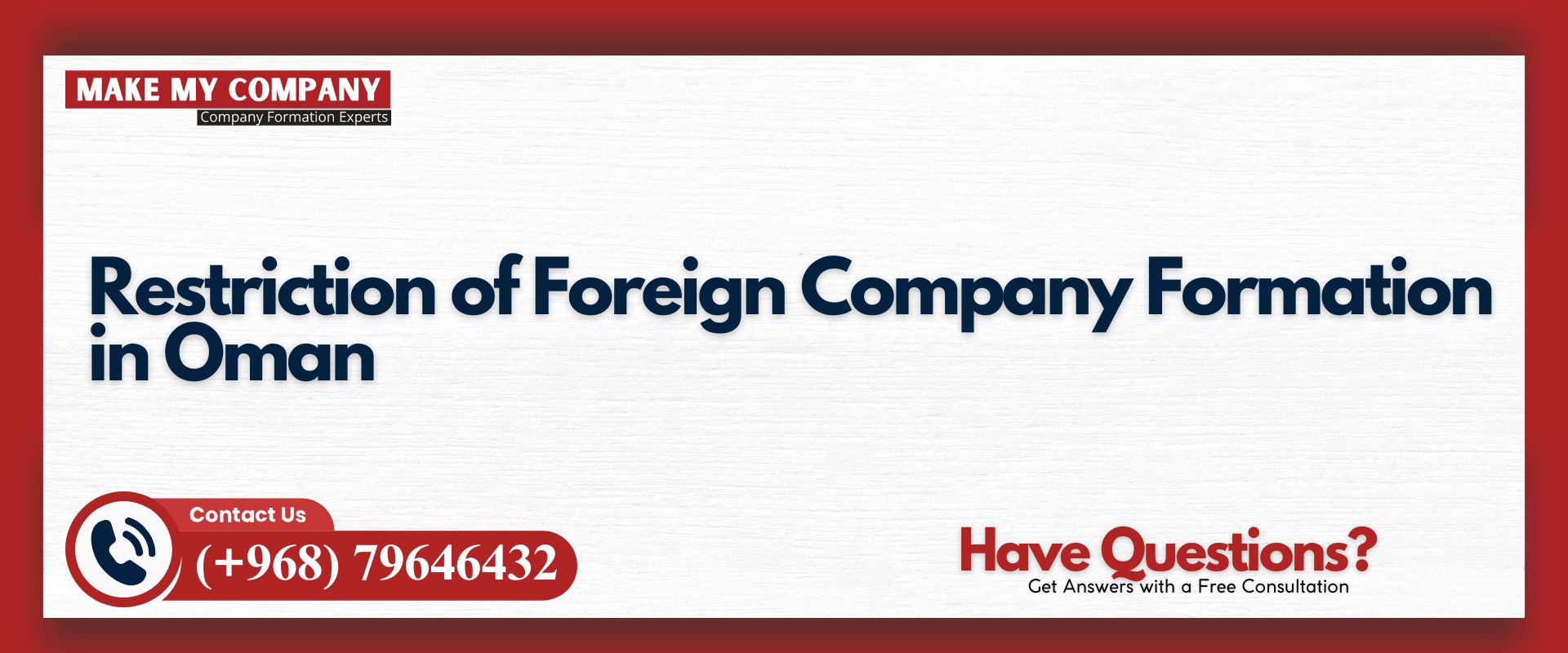Government contracts in Oman present a remarkable opportunity for businesses looking to secure long-term, stable, and high-value projects. The Omani government invests heavily in infrastructure, healthcare, energy, construction, and technology, making it an attractive destination for both local and international companies. Winning government tenders not only provides financial stability but also enhances a company’s reputation, paving the way for future projects in the region.
However, successfully registering a business for government contracts in Oman requires a clear understanding of the legal requirements, tendering procedures, licensing, and compliance standards. The process involves multiple steps, from establishing a legal business entity and obtaining the necessary permits to understanding how to bid for contracts effectively.
This detailed guide explores everything businesses need to know about registering for government contracts in Oman, ensuring compliance with the country’s procurement system, and positioning themselves for success in the competitive bidding process.
Understanding Government Contracts in Oman
Government contracts are agreements between businesses and Omani government entities for the supply of goods, services, or infrastructure projects. These contracts are typically awarded through a competitive bidding process, ensuring that the most qualified and cost-effective proposals are selected.
The Omani government follows a structured procurement system, ensuring transparency, fair competition, and equal opportunities for all businesses. The Tender Board of Oman, an independent body, is responsible for overseeing public procurement and awarding contracts based on predefined criteria such as experience, pricing, technical capabilities, and compliance with local regulations.
For businesses seeking government contracts in Oman, understanding how this system works is crucial. The process is competitive, and companies must demonstrate their financial stability, technical expertise, and ability to meet project timelines to be considered for lucrative contracts.
Steps to Register a Business for Government Contracts in Oman
Registering a business for government contracts in Oman requires a structured process to ensure compliance with legal and procurement regulations. Businesses must complete commercial registration, obtain necessary licenses, and register with the Oman Tender Board before they can bid for contracts. Understanding these steps helps streamline the application process and improves the chances of securing government projects.
Step 1: Choose the Right Business Structure
Before a business can qualify for government contracts in Oman, it must be legally registered. The type of business structure chosen will determine ownership rights, taxation, and eligibility for public tenders.
One of the most common business structures used for securing government contracts is the Limited Liability Company (LLC). An LLC is suitable for both local and foreign investors, though it typically requires an Omani shareholder to own at least 30% of the business unless it is registered in a Free Zone.
For foreign companies looking to enter Oman’s government procurement sector, setting up a branch office or establishing a joint venture with a local Omani partner can also be viable options. Free Zone companies, while offering 100% foreign ownership, may have limited access to government contracts, as most public tenders prefer businesses registered within mainland Oman.
Understanding the advantages and limitations of each business structure is critical in determining the best approach for government contract eligibility.
Step 2: Obtain Commercial Registration
Every business intending to bid for government contracts in Oman must be registered with the Ministry of Commerce, Industry & Investment Promotion (MOCIIP). The commercial registration process involves multiple steps, including:
- Selecting a Unique Business Name that complies with Omani naming regulations.
- Drafting the Memorandum of Association (MoA) outlining business activities and shareholder agreements.
- Obtaining a Commercial Registration Certificate (CR) from MOCIIP, which serves as proof of legal business operation.
- Enrolling in the Oman Chamber of Commerce and Industry (OCCI), a mandatory requirement for government tender participation.
Without proper commercial registration, a business cannot proceed with the government contract bidding process.
Step 3: Register with the Oman Tender Board
The Tender Board of Oman is the primary authority responsible for overseeing government procurement. Businesses seeking to bid on government contracts in Oman must be officially registered with the Tender Board.
The registration process involves:
- Submitting legal business documents, including the Commercial Registration Certificate (CR), proof of financial stability, and company ownership details.
- Providing tax clearance certificates to confirm compliance with Omani tax laws.
- Paying a registration fee, which varies depending on the business category and size.
- Obtaining a Tender Board Registration Certificate, which grants access to bid for government tenders and projects.
Once registered, businesses gain the ability to monitor upcoming tenders, submit proposals, and participate in government contract bidding opportunities.
Step 4: Secure Industry-Specific Licenses
Certain industries require sector-specific approvals before they can qualify for government contracts in Oman. Businesses involved in construction, healthcare, IT, defense, and energy must acquire additional licenses from relevant authorities.
For example:
- Construction firms need certification from the Ministry of Housing and Urban Planning.
- Healthcare providers must be approved by the Ministry of Health.
- IT and technology businesses must comply with Oman’s cybersecurity regulations.
- Environmental and energy firms must meet the standards set by the Environment Authority.
Failing to obtain the necessary approvals can delay business registration and tender eligibility.
Step 5: Prepare for the Government Bidding Process
Bidding for government contracts in Oman is highly competitive, and companies must ensure their proposals meet government standards. The bidding process typically follows these stages:
- Review Tender Announcements – Businesses should regularly check the Tender Board’s official website for new government projects.
- Submit a Competitive Proposal – A well-structured bid should include pricing, technical expertise, financial strength, and a detailed project execution plan.
- Demonstrate Compliance with Regulations – Bids must align with Omani procurement policies and legal frameworks.
- Wait for Evaluation and Awarding Process – The government evaluates bids based on quality, experience, and cost-effectiveness before awarding contracts.
Companies with previous experience in government projects, strong financial backing, and a track record of timely project delivery have a higher chance of securing tenders.
Challenges Businesses Face in Registering for Government Contracts
While Oman offers numerous opportunities for businesses to participate in government projects, securing government contracts in Oman is not without its challenges. Many companies face hurdles related to competition, regulatory compliance, documentation, Omanization policies, financial requirements, and the complex bidding process. Understanding these challenges and preparing for them in advance can significantly improve a business’s chances of successfully registering and winning government tenders.
High Competition in the Government Contracting Sector
One of the biggest challenges in securing government contracts in Oman is the high level of competition. The Omani government attracts both local and international businesses, leading to an influx of well-established companies bidding for projects.
Local firms often have the advantage of familiarity with regulations, established industry connections, and experience working with government entities. Meanwhile, large multinational corporations bring financial strength, advanced technology, and project management expertise, making it even harder for small and medium-sized businesses (SMEs) to compete.
To overcome this challenge, businesses must focus on creating highly competitive proposals that highlight their expertise, experience, and cost-effectiveness. Establishing strategic partnerships with Omani companies can also provide an edge by leveraging local knowledge and increasing credibility in the bidding process.
Complex Regulatory and Compliance Requirements
The Omani government enforces strict compliance policies to ensure that only qualified and legally registered companies participate in government tenders. Businesses looking to register must go through multiple levels of approvals, licensing, and documentation before they are eligible to bid.
Companies must:
- Obtain commercial registration from the Ministry of Commerce, Industry & Investment Promotion (MOCIIP).
- Register with the Oman Chamber of Commerce and Industry (OCCI).
- Secure additional licenses for sector-specific businesses (such as healthcare, construction, or IT).
- Comply with Omani tax laws, VAT registration, and financial auditing regulations.
Many businesses, particularly foreign companies, struggle to navigate these legal complexities, resulting in delays in registration. Working with business registration consultants or legal experts in Oman can help streamline the process and ensure full compliance with local laws.
Lengthy and Bureaucratic Registration Process
The process of registering for government contracts in Oman can be lengthy, involving multiple government agencies and extensive paperwork. Companies must submit:
- Commercial registration documents.
- Financial statements and tax clearance certificates.
- Proof of past experience and project performance reports.
- Legal agreements, including Memorandum of Association (MoA).
Each approval stage can take several weeks to months, depending on the business type and industry. Delays in approvals, missing documents, or errors in submissions can further extend the timeline.
To navigate this bureaucratic process efficiently, businesses should:
- Start the registration process well in advance of bidding deadlines.
- Ensure that all required documents are accurate, up-to-date, and properly attested.
- Maintain open communication with the relevant government authorities to track progress.
Meeting Omanization Quotas and Employment Regulations
The Omani government mandates Omanization policies, requiring businesses to hire a minimum percentage of Omani nationals as part of their workforce. The required quota varies by industry and company size.
For example:
- Banking and financial services must maintain a high Omanization percentage (often exceeding 60%).
- Construction and engineering sectors may have lower requirements, but must still comply with local hiring policies.
- Companies with over 50 employees must follow stricter Omanization regulations than smaller businesses.
Failure to meet these requirements can result in:
- Fines and penalties from the Ministry of Labor.
- Disqualification from government tenders.
- Work visa and hiring restrictions for foreign employees.
To address this challenge, businesses must:
- Develop Omanization-friendly recruitment strategies.
- Partner with local training institutions to train Omani talent.
- Offer attractive salary packages and career growth opportunities to retain local employees.
Financial Requirements and Performance Guarantees
Securing government contracts in Oman often requires businesses to demonstrate strong financial stability. Many public-sector projects require:
- Financial statements audited for at least the past three years.
- A minimum capital investment (varies by project type).
- Bank guarantees or performance bonds as a security measure.
For small businesses and new startups, meeting these financial conditions can be difficult. Many government tenders require bidders to submit advance security deposits or performance bonds (usually 5-10% of the project value), which can put financial strain on smaller firms.
To overcome financial barriers, businesses should:
- Maintain strong banking relationships to secure performance guarantees.
- Seek local or foreign investors to improve financial standing.
- Ensure accurate financial record-keeping to meet auditing requirements.
Proper financial planning and demonstrating long-term stability can improve a company’s chances of passing the government’s pre-qualification assessment.
Language and Cultural Barriers for Foreign Businesses
For foreign companies looking to enter Oman’s government contract market, language and cultural differences can present significant challenges. Most official government tenders, contracts, and legal documents are in Arabic, requiring businesses to have a proper translation of all documents before submission.
Additionally, understanding Omani business culture and negotiation practices is crucial. Government decision-making processes may involve multiple layers of approvals, and building relationships with local business leaders, government officials, and industry stakeholders can influence success.
Foreign businesses can navigate these challenges by:
- Hiring Arabic-speaking legal advisors and consultants.
- Partnering with reputable Omani firms for local representation.
- Attending business networking events and trade fairs to establish connections with government officials.
A strong understanding of Omani cultural norms and business etiquette can help companies stand out in the competitive government tendering process.
Technical Expertise and Past Project Experience
Many government contracts in Oman require businesses to showcase previous experience in handling similar projects. This includes:
- Proven expertise in the industry.
- Completed projects of a similar scale and complexity.
- Client references and testimonials from past work.
For newly established companies or businesses entering the Omani market for the first time, proving credibility without prior government projects can be difficult.
To overcome this, companies can:
- Form joint ventures with established Omani firms.
- Subcontract smaller projects to gain relevant experience.
- Highlight expertise in other markets to showcase capabilities.
Demonstrating a strong track record in project execution, risk management, and compliance improves a company’s chances of winning government tenders.
Adapting to the Tender Evaluation Process
The tender evaluation process in Oman is highly detailed and structured, making it crucial for businesses to submit accurate, well-documented bids. Government agencies assess proposals based on:
- Project cost-effectiveness.
- Technical expertise and manpower capabilities.
- Compliance with safety and environmental regulations.
- Timely project delivery commitments.
Errors in tender documentation, pricing miscalculations, or failure to comply with evaluation criteria can lead to immediate disqualification.
To improve bid success rates, businesses should:
- Work with professional bid writers to ensure clarity and precision.
- Conduct detailed market research to offer competitive pricing.
- Attend pre-bid meetings and consultations to better understand government expectations.
Mastering the tender evaluation process is key to securing government contracts in Oman.
Conclusion
Registering for government contracts in Oman requires careful planning, legal compliance, and strategic preparation. From choosing the right business structure and securing commercial registration to obtaining industry-specific licenses and competing in the bidding process, businesses must navigate multiple steps to qualify for lucrative government tenders.
For companies seeking a streamlined and hassle-free registration process, working with experts in Company Registration in Oman can ensure compliance with local regulations and improve the chances of winning government contracts. With the right approach, businesses can successfully tap into Oman’s thriving public-sector opportunities, ensuring long-term growth and profitability.
FAQs
Can a foreign company apply for government contracts in Oman?
Yes, foreign companies can bid for government contracts in Oman, but they must establish a branch office, register an LLC with an Omani partner (30% ownership), or operate in a Free Zone. Registration with the Tender Board is also mandatory.
How long does it take to register a business for government contracts?
The process typically takes 4 to 8 weeks, depending on the business structure, industry, and required approvals. Delays may occur due to documentation issues or regulatory compliance.
What documents are required for registration?
Key documents include:
- Commercial Registration Certificate (CR) from MOCIIP.
- Tax Clearance Certificate from the Omani Tax Authority.
- Financial Statements (last 3 years, audited).
- Oman Chamber of Commerce and Industry (OCCI) membership.
- Tender Board Registration Certificate.
- Industry-specific licenses (if applicable).
What industries have the most government contract opportunities?
Major sectors include:
- Construction and Infrastructure
- Energy and Renewable Resources
- Healthcare and Pharmaceuticals
- IT and Telecommunications
- Defense and Security Services
- Logistics and Transportation
Are there special incentives for SMEs bidding for government contracts?
Yes, Oman encourages small and medium-sized enterprises (SMEs) to participate in government contracts. Some tenders are exclusively reserved for Omani SMEs, and local businesses may receive financial incentives and priority consideration.
Do businesses need an Omani partner to bid on government contracts?
For LLCs registered in mainland Oman, an Omani partner (minimum 30% ownership) is required. However, Free Zone companies and foreign branch offices may bid independently, depending on the contract type.
What are the tax requirements for businesses bidding on government contracts?
Businesses must comply with Oman’s tax laws, including:
- 15% corporate tax (standard rate for most companies).
- 0% tax for small businesses (annual income below OMR 30,000).
- 5% VAT on goods and services.
Proper tax compliance is required for Tender Board approval.
How do businesses find government contract opportunities in Oman?
Tenders are published on:
- The Oman Tender Board website.
- Government ministry websites.
- Local newspapers and official bulletins.
- Networking events and business expos.
Can a newly registered company bid for government contracts?
Yes, but most government contracts in Oman require businesses to demonstrate previous experience and financial stability. New companies can improve their chances by:
- Partnering with established Omani firms.
- Submitting joint bids with experienced contractors.
- Providing strong technical expertise and innovation.
What happens if a company fails to meet contract requirements?
Failure to meet contract terms can result in:
- Financial penalties.
- Legal action from government authorities.
- Disqualification from future tenders.
- Blacklisting by the Tender Board.
Businesses must ensure compliance with project deadlines, financial commitments, and labor laws to maintain a positive reputation.









